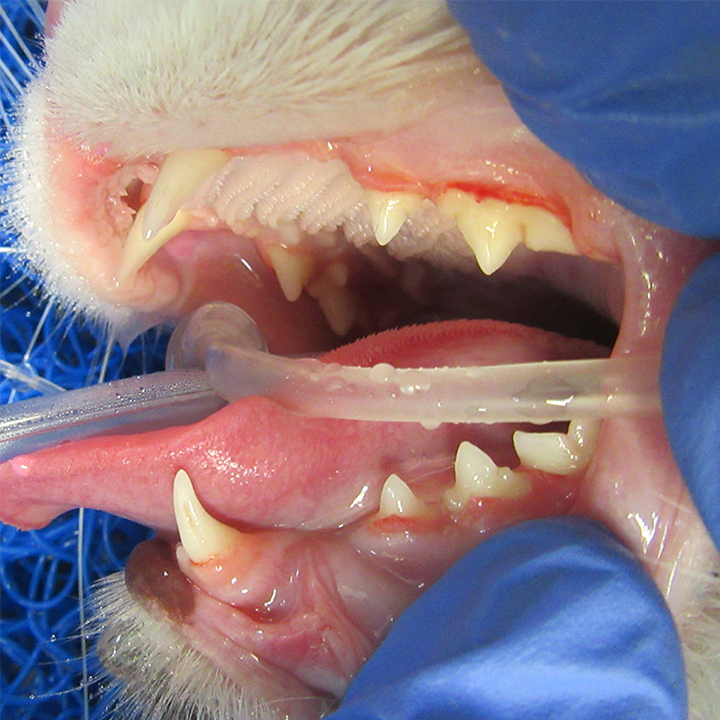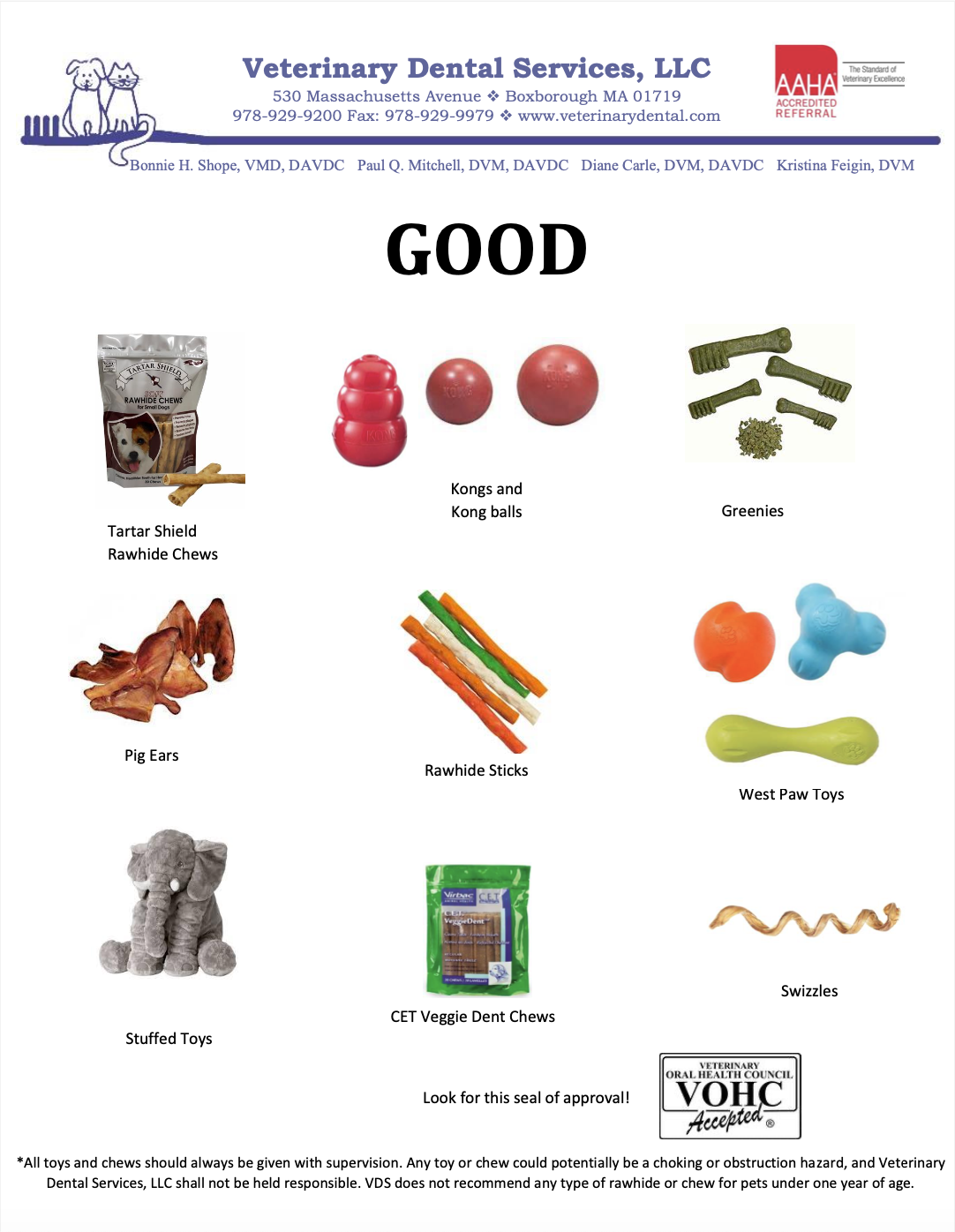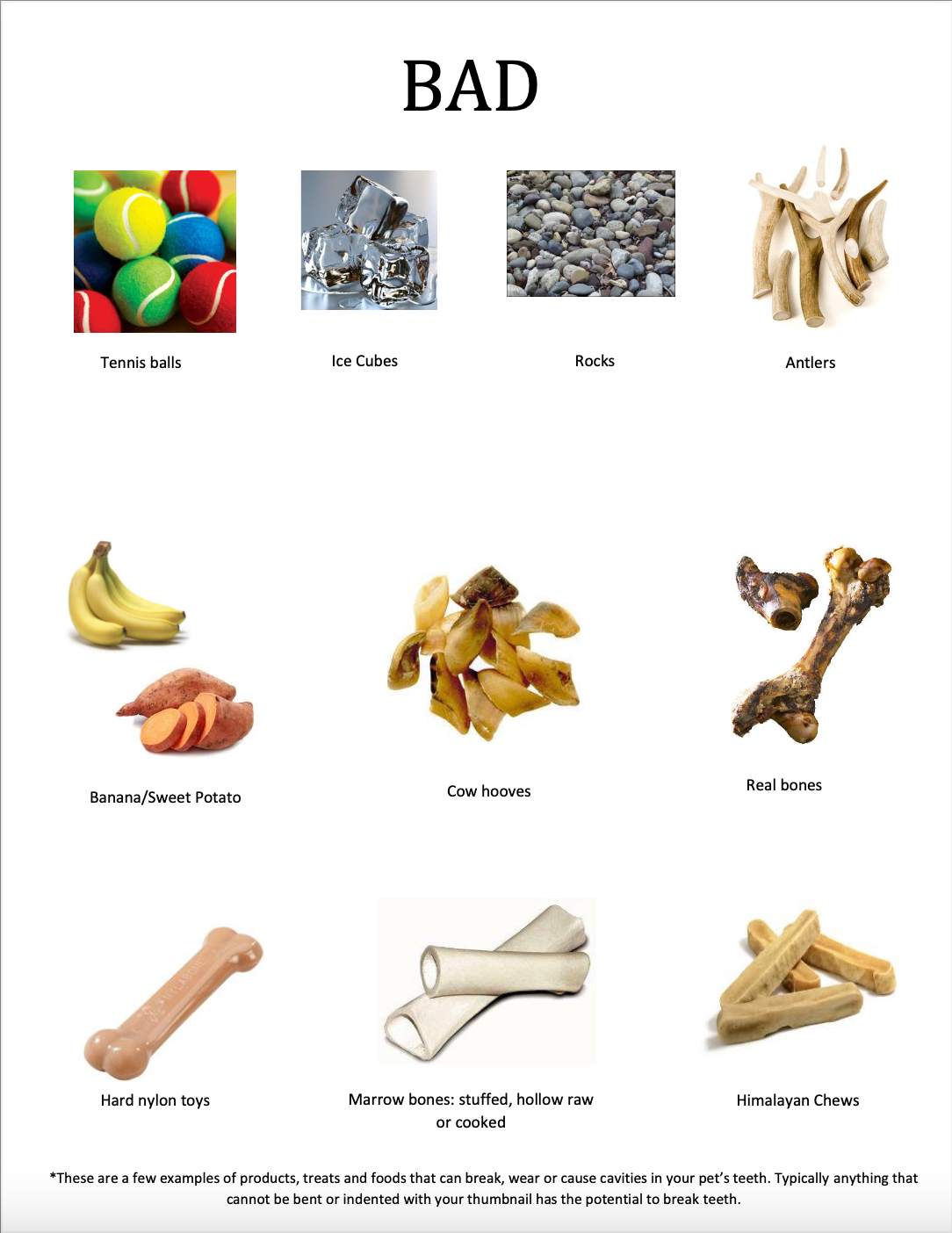|
Dental and Oral Care
The importance of routine dental care cannot be stressed enough. Proper dental care actually helps prevent many health problems as your pet ages, as dental problems can cause other health problems, like heart and kidney disease.
Our wellness exams always include a thorough examination of the mouth.
Preventive Care
When early plaque buildup is diagnosed, we offer preventive care products and advice to keep our patients healthy. Veterinary and Rehabilitation Center of Cape Elizabeth only endorses products approved by the Veterinary Oral Health Council (VOHC) as safe and effective. In order to keep your pet's mouth healthy consider one or more of the following:
- Daily tooth brushing with a soft bristled brush and pet toothpaste (designed to be swallowed). Here is an instructional video.
- A dental diet proven to fight the accumulation of plaque and tartar (Hills Prescription Diet t/d, Science Diet Oral Care)
- A liquid that can be added to drinking water to slow down plaque buildup (HealthyMouth and Vetradent Liquid Water Additive and others)
- A gel that is applied daily to the area where the tooth meets the gum tissue (HealthyMouth Gel)
- A spray that is applied daily to the teeth (HealthyMouth Spray)
- Specially designed and formulated rawhide or other dental chews (Tartar Shield Soft Rawhide Chews and Greenies)
 
Dental Cleanings
Once tartar has accumulated on the surface of the teeth or gingivitis has been diagnosed, the next step is a professional dental cleaning. The only way to remove built-up tartar and stop the progression of dental disease is scaling, polishing and fluoride just like your dentist provides. Even the most obedient pets won't lie back and keep their mouths open, so this procedure needs to be done under general anesthesia. This means your pet will need to spend the day in a veterinary hospital and come home with sweet-smelling breath and clean, healthy teeth and gums.
Delaying or abstaining from dental cleanings can have drastic implications on your pet's dental and overall health. As tartar builds up, gingivitis and periodontal disease eventually leads to irreparable dental disease. In addition to tooth loss, this infection can enter the blood stream, leading to other health problems involving the kidneys, liver and heart.
During your pet’s dental procedure, dental x-rays may be taken to detect hidden disease under the gum line and to guide oral surgery. These images are an important tool in diagnosis and treatment of dental disease in cats and dogs.
For more complex dental care such as endodontic therapy (root canals) and orthodontics, we recommend veterinary dental specialists. While there are none currently practicing in Maine, there are several in Massachusetts, including: Drs. Bonnie Shope, Kristina Feigin and Daniel Clayton at Veterinary Dental Services in Boxborough, Drs. Jessica Riehl and Joyce Tai at Angell Animal Medical Center in Jamaica Plain and Dr. Bill Kellner at Burlington Emergency and Veterinary Specialists in Williston, VT.
Veterinary dental care is expensive, largely because we have to use anesthesia for our patients and we see advanced disease that requires a lot of time to treat. If you are looking to have a dental cleaning or other dental procedure done at a local veterinary hospital, ask them the following questions to ensure your pet receives the safest and most reliable care:
- Will my pet have an intravenous catheter during the procedure?
- Will the veterinarian be supervising and monitoring the entire procedure?
- If they are necessary, will the veterinarian perform all tooth extractions?
- Will you take dental radiographs to detect hidden disease?
The Good and Bad Chew List
Not all chew toys are created equal and many should come with warning labels about permanent damage they may cause. Here is a helpful good and bad dog chew list.
 
| 



